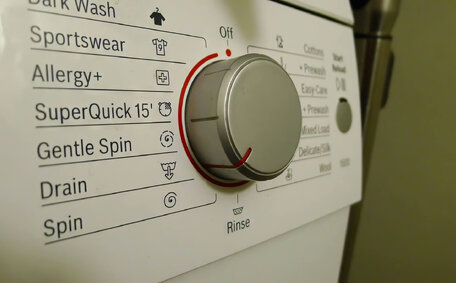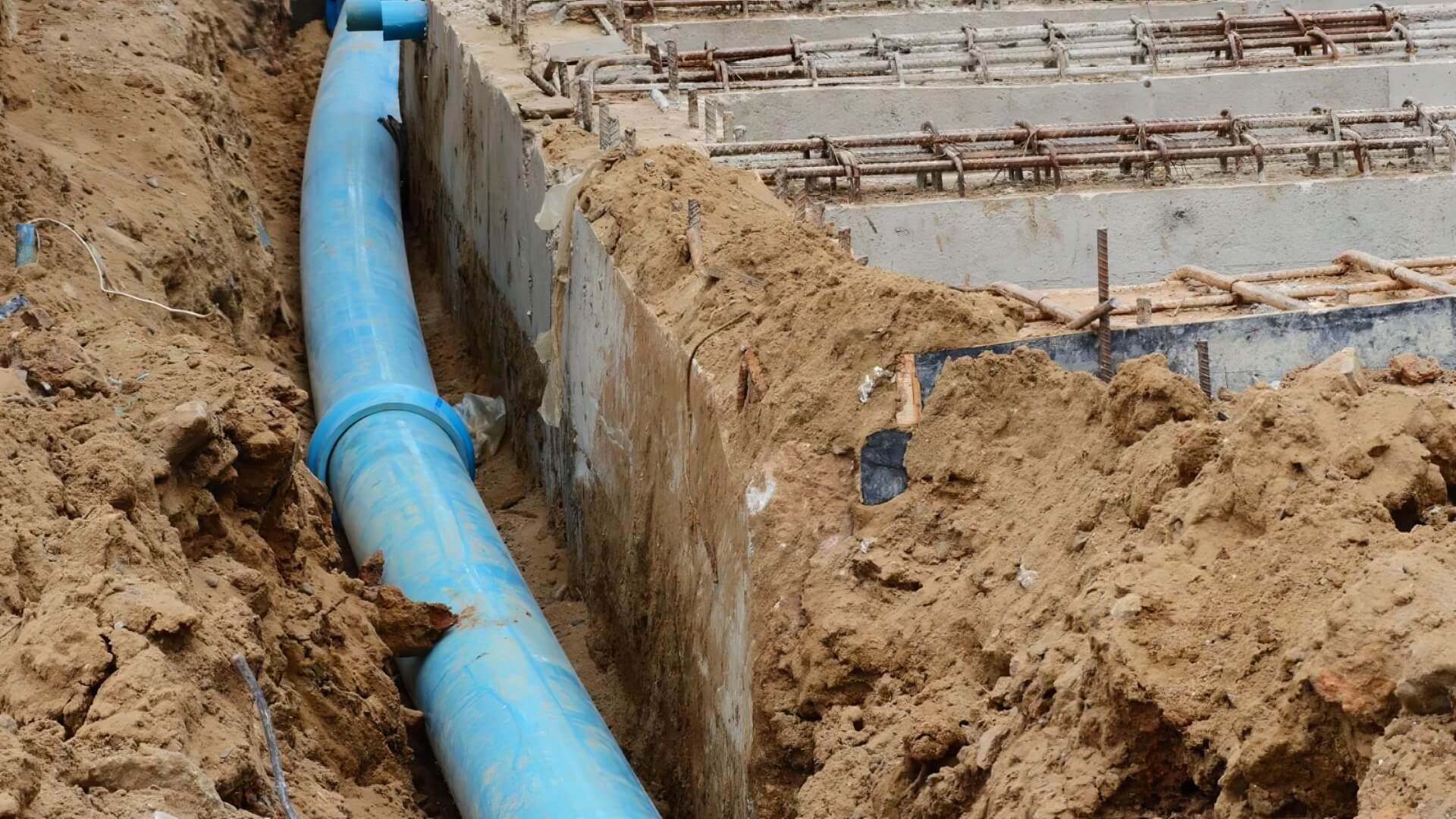Introduction to Chemical Drain Cleaners
Chemical drain cleaners come in various forms such as powders, crystals, gels, and liquids and contain harsh ingredients like lye, acids, or oxidising agents. They work quickly to penetrate, dissolve, and flush away substances like hair, soap scum, grease, and even tree roots that have become lodged in pipes.
While products like Liquid-Plumr provide rapid solutions, they come with risks due to corrosive chemicals that may damage your plumbing or the environment. This article delves into the benefits and drawbacks of chemical drain cleaners, along with preventive tips to maintain clear drains.
Authored by the skilled team at St Marys Plumbing, this article examines the efficacy, risks, proper application, and alternatives to chemical drain cleaners. Our aim is to equip readers with knowledge about drain cleaning agents, enabling them to make informed decisions regarding the use of these potent but potentially harmful substances.
How Chemical Drain Cleaners Work
Chemical drain cleaners typically utilise corrosive substances to disintegrate blockages, with many featuring potent alkaline or acidic compounds such as sodium hydroxide, potassium hydroxide, or sulfuric acid that decompose materials like hair, grease, and soap deposits.
When max gel or liquid drain cleaners, powder, or crystal variants are poured down the drain, these caustic chemicals get to work dissolving the clog. Acidic drain products can generate heat and saponify fats and oils, turning them into soap that can be easily rinsed away.
As these chemicals react, they liquefy, emulsify, and break down clog materials until the debris can freely flow down the pipes. The exothermic reaction heats the chemicals, helping them work faster. Gas is often produced as a byproduct, which forces pressure against the clog to help dislodge it.
Formulated to adhere to blockages, these cleaners remain active post-application, ensuring thorough disintegration of obstructions. Since these chemicals are denser than water, they can penetrate through any liquid accumulation in the pipes to target clogs directly.
Although effective at clearing blockages, chemical drain cleaners may be unsafe for PVC pipes among others and can cause harm if misapplied. Adherence to label instructions is crucial, as is awareness of the potential consequences when chemical drain cleaners are used excessively.
Pros of Using Chemical Drain Cleaners
Fast-Acting
A major advantage of chemical solutions is their rapid action, which makes them a potentially optimal choice for unclogging drains.
As soon as the chemicals come into contact with the clog, they start dissolving and breaking it down the drain. This rapid reaction time when you do use drain cleaning products allows clearing a clogged drain in as little as 5-30 minutes in many cases. The rapid effectiveness of drain cleaners makes them a convenient quick fix for totally blocked drains.
Low Cost
Weighing the pros and cons of using drain cleaners, it’s easy to find and engage with those products that are widely available at supermarkets and hardware stores for very reasonable prices. From a cost standpoint, this makes chemical options a potential contender for the title of most economical drain unclogging solution.
An average drain cleaner, costing only a few dollars, can resolve several clogs, making it an economical choice. Their affordability and simplicity make them a widely accessible solution for cost-conscious homeowners and businesses.
Easy to Obtain
The wide availability of chemical drain cleaners makes them extremely easy to obtain. Keeping a drain cleaner at hand enables you to address clogs promptly.
Supermarkets, pharmacies, hardware stores, and home goods shops typically stock commercial drain cleaners, making them readily available. This broad availability means you can pick up a bottle even late at night or on weekends when other services may be unavailable.
Effective on Certain Clogs
Chemical drain cleaners excel at disintegrating clog constituents like hair, soap scum, grease, and assorted debris. The potent ingredients in alkaline drain cleaners can efficiently dissolve substances commonly found in drains.
For clogs such as those caused by tree debris, chemical cleaners can provide an effective solution.
Cons of Using Chemical Drain Cleaners
Can Damage Pipes
The corrosive agents in chemical drain cleaners may cause pipe erosion and potential perforation, cautioning against indiscriminate use. Additionally, the emitted fumes can corrode metal pipes and joints, posing an often-overlooked hazard.
Harsh on Plumbing and Septic Systems
Frequent use of drain cleaners, which usually contain harsh chemicals, can take a toll on your plumbing system. Caustic chemicals can linger in pipes and build up over time, leading to corrosion.
Moreover, for septic systems, certain chemical drain cleaners can kill the essential bacteria, damaging the system gradually.
Hazardous Chemicals
The hazardous ingredients in chemical drain cleaners can inflict severe burns, underscoring the risk of serious injury upon skin contact or ingestion.
The fumes released when employing these substances for clearing clogged drains are also quite dangerous and corrosive if inhaled. Take appropriate safety measures such as wearing gloves and avoiding inhalation of vapours. Incorrect use of chemical drain solutions carries significant health hazards.
Not Effective on All Clog Types
Despite their ability to dissolve organic clogs like hair and grease, chemical drain cleaners struggle with obstructions like tree roots or hard debris deep within drain pipes.
These chemicals falter against obstructions that are deeply embedded or solid in nature. Mechanical clearing, such as using a drain snake or hydro jetting, is needed for persistent deep-seated blockages.
Alternatives to Chemical Drain Cleaners
Mechanical Drain Cleaning
Opting for mechanical tools is a safer route for drain clearance, mitigating risks to both your health and plumbing infrastructure. Tools such as plungers, drain snakes or augers, and hydro jetting apply physical force to dislodge blockages.
A plunger creates suction to loosen blockages and is a safe first step for minor sinks and tub clogs. For deeper blockages, drain snakes can reach further down pipes and physically grab and pull out debris. Hydro jetting blasts pressurised water to scour pipes clean.
Natural Drain Cleaners
Natural ingredients like vinegar and baking soda, along with boiling water, or even drain augers, provide chemical-free drain cleaning options. One cup of a vinegar and baking soda combination creates a fizzing chemical reaction that helps break up gunk. A pot of boiling water poured down your drain can help dissolve grease blockages.
Enzymatic Drain Cleaners
Enzyme-based drain cleaners use bacteria and natural enzymes to continuously break down oil, grease, hair, and food over time. They are much safer for pipes and your septic system compared to harsh chemical cleaners.
Get in touch with St Marys Plumbing for a pipe-friendly and effective solution to your drain cleaning needs. Our seasoned professionals can safely remove blockages and offer preventive maintenance to ensure your drains remain unobstructed.
Tips for Preventing Clogs
Clogged drains can be a nuisance, but there are steps you can take to help prevent obstructions and keep pipes clear. Here are some useful tips from the team at St Marys Plumbing for avoiding clogs in your plumbing:
Install drain screens/guards
Fitting drain screens or guards over your sink, tubs, and shower outlets prevents hair and debris from accumulating in pipes. Clean screens regularly to remove buildup.
Avoid pouring grease down drains
Grease and oil can stick to pipe walls and cause blockages. Never pour fats, oils or grease down your drains. Wipe greasy pans with paper towels before washing.
Use a drain catcher
Place drain catchers or stoppers in sinks to collect food scraps and particles. Empty catchers into the bin regularly to stop debris going down the drain.
Use a sink strainer when washing dishes
Letting food scraps from dish washing go down the drain is a common cause of clogs. Use sink strainers to catch bits of food when doing dishes.
Limit use of garbage disposal
Overusing garbage disposals can result in blockages that demand drain cleaning attention. Avoid putting large amounts of food waste down the disposal. Compost when possible.
Flush pipes regularly
Periodically flush drains with hot water down drain to clear any accumulated grease and soap scum before it can harden and clog pipes.
Use enzyme drain cleaners
Enzyme-based drain cleaners help break down organic matter, effectively addressing all types clogs over time. Use monthly to keep drains clear.
Professional maintenance
Have a plumber perform preventative maintenance like hydro jetting or cable augering to keep your pipes clean. Professionals like St Marys Plumbing can also inspect for root intrusion or other issues.
Following these tips will help minimise clogs. But if a blockage does occur, don’t hesitate to call a plumber from our team for exceptional drain cleaning services.
Conclusion
In summary, chemical drain cleaners offer a fast and readily available solution for clearing simple clogs, making them a convenient option for many homeowners and businesses. However, these products also pose notable downsides given their harsh, corrosive ingredients that can damage plumbing systems over time.
When used properly on appropriate clog types, they can provide effective relief. Frequent or improper use heightens the risks to pipes and health.
For tough or larger-scale drain issues involving other organic matter, chemical cleaners are unlikely to provide a complete solution. In these cases, mechanical methods performed by a professional plumber will be required. Through expertise and specialised tools, plumbing services can address the root cause of clogs and ensure long-term functionality.
By weighing the pros and cons, St Marys residents can make informed decisions about whether chemical drain cleaners are appropriate for their specific plumbing needs. Prevention through good maintenance habits is the best medicine, but when clogs inevitably occur, St Marys Plumbing stands ready to help.
Contact us today for superior drain assessments and clearing services, under our conditions privacy assured, plus tips tailored for your home or business. Our team is always available to ensure your plumbing systems operate smoothly.
For swift, expert help with any drain obstruction, backed by years of local experience, call St Marys Plumbing on 1300 349 338. Our staff are ready to help 24/7.






